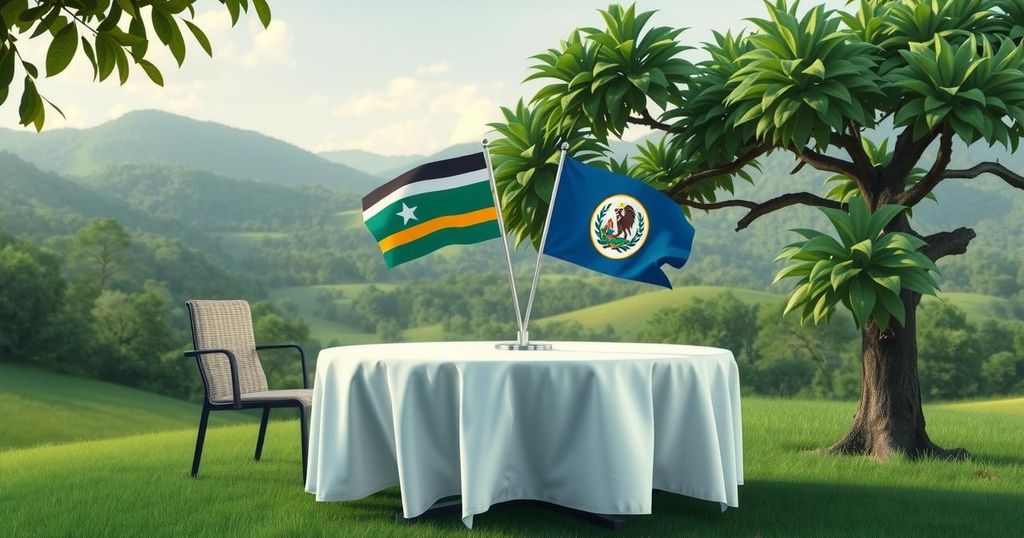On March 18, Rwandan President Paul Kagame met with DRC President Félix Tshisekedi in Qatar to discuss the eastern Congo conflict involving the M23 rebel group. They reaffirmed the commitment to a ceasefire and emphasized continued dialogue. The meeting was significant but complicated by recent EU sanctions on M23 leaders and ongoing violence in the region that has caused severe humanitarian impacts.
On March 18, the presidents of Rwanda, Paul Kagame, and the Democratic Republic of Congo (DRC), Félix Tshisekedi, convened in Qatar to discuss the ongoing conflict in eastern Congo involving the March 23 Movement (M23) rebel group, which was not present at the meeting. They reaffirmed their commitment to an immediate and unconditional ceasefire in a joint statement released after their discussions in Doha, which were mediated by Qatari Emir Tamim bin Hamad Al Thani.
This meeting coincided with a planned peace dialogue in Angola, which was canceled after the M23 withdrew due to sanctions imposed by the European Union on certain leaders of the rebel group. The statement highlighted the necessity for continued talks initiated in Doha to establish a strong foundation for lasting peace.
The two leaders are scheduled to meet again at a peace summit on December 15, 2024, following a ceasefire agreement signed in Luanda on July 30, which took effect on August 4 but was disrupted by ongoing conflict. The summit was suspended due to a disagreement over the M23’s involvement in the negotiations, with Rwanda advocating for their inclusion and the DRC opposing it.
João Lourenço’s mediating efforts on March 18 were not unprecedented, yet it marked the first instance in which the Congolese government agreed to participate in direct talks with the M23. Unfortunately, the Angolan Foreign Affairs Ministry confirmed that the dialogue could not proceed due to “reasons and circumstances of force majeure” following the M23’s withdrawal due to the EU’s measures.
The Congo River Alliance (AFC), associated with the M23, expressed disappointment that international institutions allegedly undermined peace efforts and obstructed critical negotiations. The M23, which reportedly receives support from Rwanda, controls significant areas in the mineral-rich provinces of North and South Kivu, bordering Rwanda.
Over 850,000 individuals have been displaced in South Kivu amidst the escalating conflict since January, as reported by the UN Children’s Fund. Additionally, civil unrest around the capital of North Kivu has resulted in over 8,500 fatalities, according to Congolese health authorities. The M23 resumed military operations in November 2021, intensifying fears of a regional conflict. The DRC has faced ongoing turmoil involving multiple rebel groups since 1998, despite the presence of a UN peacekeeping mission (MONUSCO).
This meeting between the presidents of Rwanda and the DRC highlights ongoing efforts to address the conflict in eastern Congo, particularly concerning the M23 rebel group. Despite challenges, including sanctions and disputes over negotiations, the leaders emphasize the necessity for dialogue to foster peace in the region. The situation remains dire, with significant humanitarian crises and the potential for broader regional instability persisting as the conflict continues.
Original Source: efe.com






